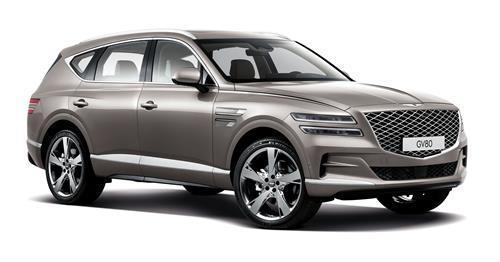- California Assembly OKs highest minimum wage in nation
- S. Korea unveils first graphic cigarette warnings
- US joins with South Korea, Japan in bid to deter North Korea
- LPGA golfer Chun In-gee finally back in action
- S. Korea won’t be top seed in final World Cup qualification round
- US men’s soccer misses 2nd straight Olympics
- US back on track in qualifying with 4-0 win over Guatemala
- High-intensity workout injuries spawn cottage industry
- CDC expands range of Zika mosquitoes into parts of Northeast
- Who knew? ‘The Walking Dead’ is helping families connect
Hyundai, Kia’s U.S. sales up 4.4 pct in Sept. amid chip shortage
South Korea’s Hyundai Motor Group said Wednesday its vehicle sales in the United States rose 4.4 percent last month from a year earlier despite the extended chip shortage.
Hyundai, its affiliate Kia Corp. and Hyundai’s independent Genesis brand sold a combined 120,642 vehicles in the world’s most important automobile market in September, up from 115,573 units a year ago, according to the companies’ sales data.
Hyundai’s sales climbed 11 percent to 59,465 units last month from 53,800 a year ago, while Kia’s were up 6.4 percent to 56,270 from 52,906 during the same period, the data showed.
Genesis vehicle sales rose 0.8 percent to 4,907 from 4,867 during the same period.
From January to September, the carmakers’ sales in the U.S. fell 7.5 percent to 1,087,326 autos from 1,175,480 during the same period of last year, the data showed.
Hyundai’s sales fell 10 percent on-year to 528,298 units in the first nine months and Kia’s declined 6.7 percent to 518,148 from 555,525 during the same period. But Genesis model sales rose 19 percent to 40,880 from 34,320.
Their sales results were partly affected by the passage of the Inflation Reduction Act (IRA). On Aug. 16, U.S. President Joe Biden signed the US$430 billion bill, which allows up to $7,500 of tax subsidies only for electric vehicles (EVs) assembled in the U.S.
The new law is widely expected to deal a blow to Hyundai and Kia, key affiliates of the group, which manufacture all of their EVs at home.
It is also putting the two Korean carmakers at a disadvantage in the U.S. market where local rivals, such as Tesla Motors Inc. and General Motors Co., build EVs and receive full state subsidies.

This file photo provided by Hyundai Motor shows the Genesis GV80 SUV. (PHOTO NOT FOR SALE) (Yonhap)











